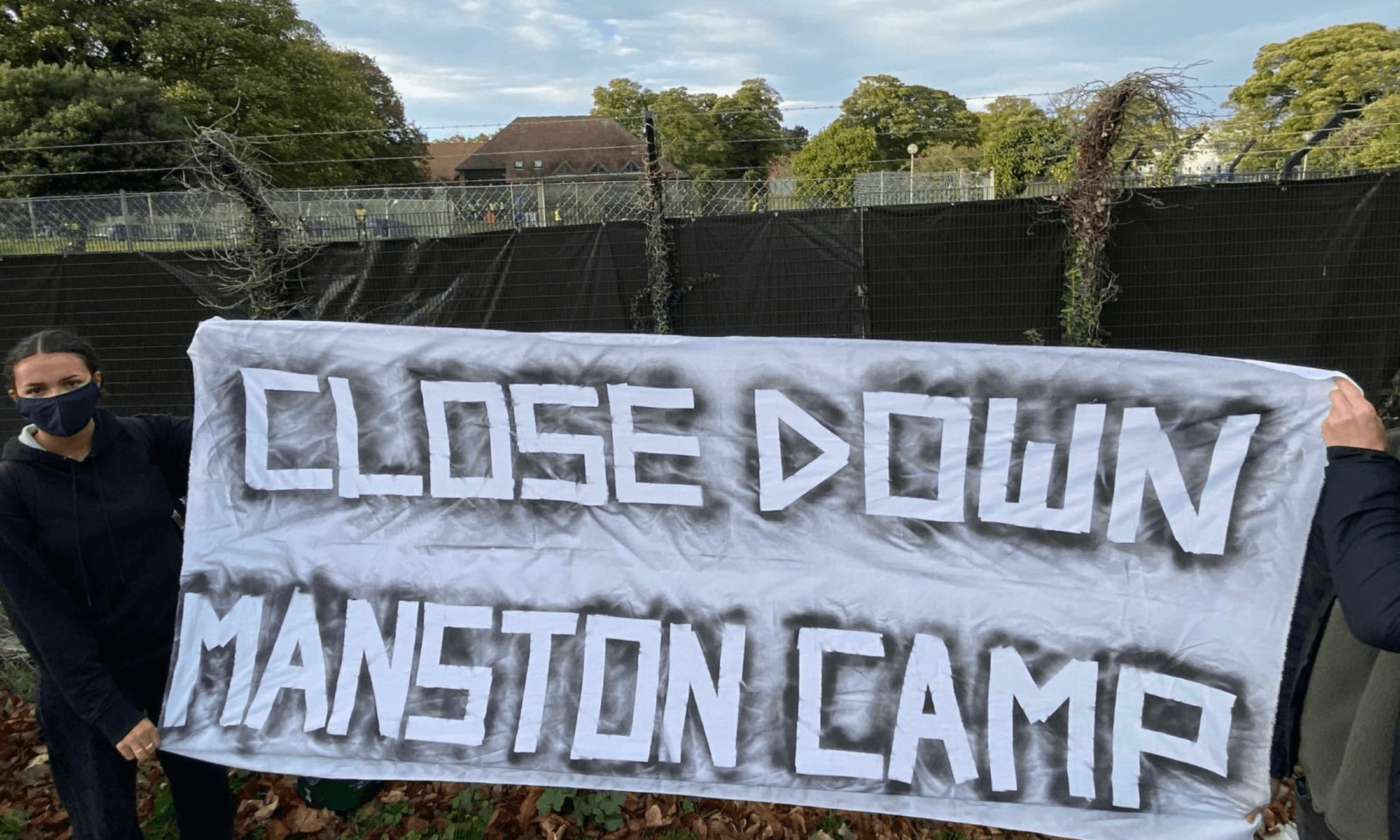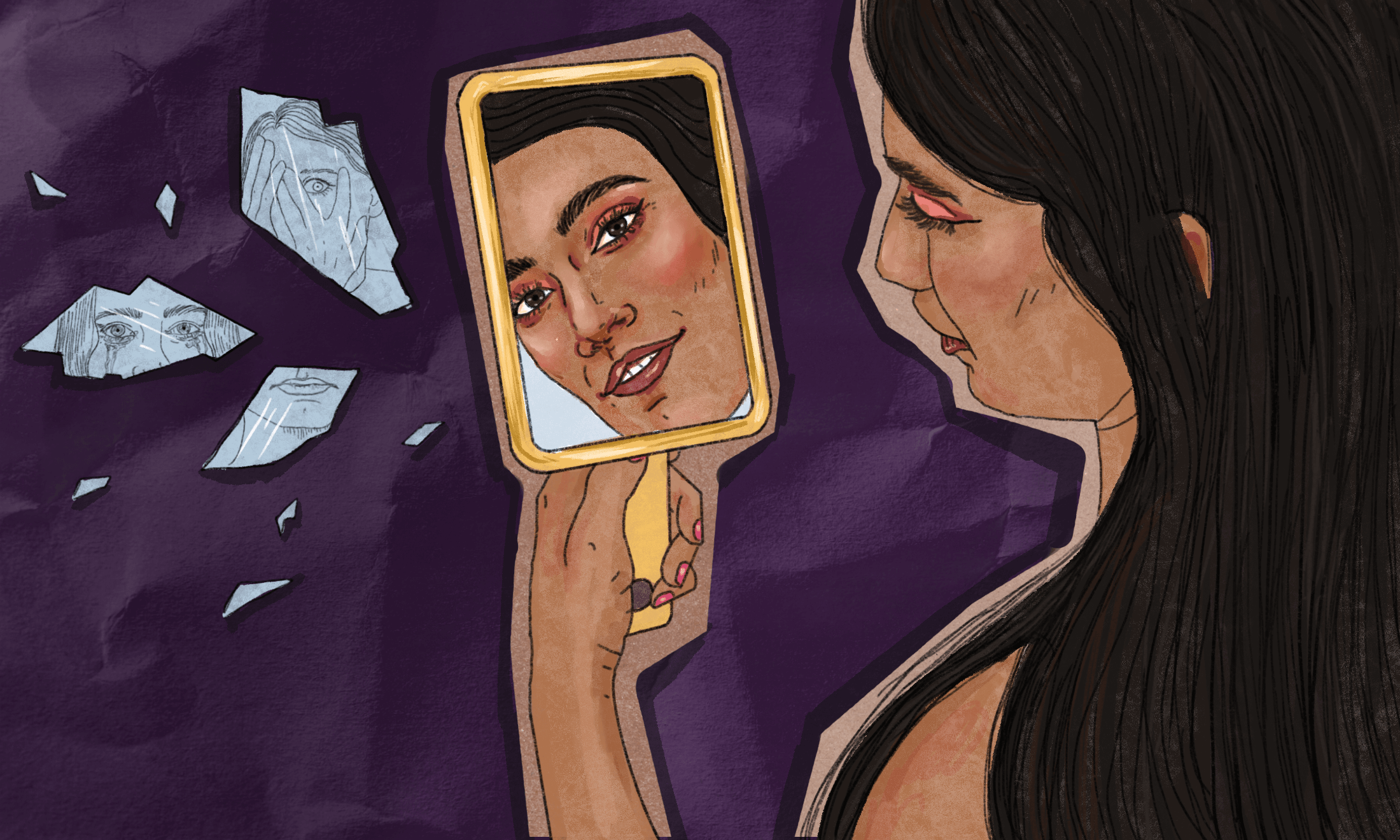
Number 10 Downing Street/UK Government/Flickr
The gal-dem guide to every terrible bill the Tories are trying to pass this year
It's hard to keep track of every piece of horrible legislation slated for 2022 by Boris Johnson and co – so we've done it for you.
Moya Lothian McLean
10 Jan 2022
Despite the tumult of the pandemic, Boris Johnson and his cabinet of horrors have been very busy over the last two years on a raft of legislation that, if enacted, will create the conditions for Britain to become a police state. That’s not hyperbole either; the Tories are attacking fundamental human rights, like that of protest and appeal against immigration decisions, while simultaneously expanding police powers and government influence over the courts.
From the Police, Crime, Sentencing and Courts Bill, to proposed ‘reform’ of the Human Rights Act, the deluge of legislation is designed to overwhelm. This urge should be resisted in favour of education, organising and resistance. Which is why gal-dem have put together this guide to every terrible bill the Tories are trying to pass this year, broken down into language that’s accessible and doesn’t require a deep understanding of constitutional law to comprehend. Read on – if you can bear it…
The Nationality and Borders Bill
What is it?
Priti Patel’s new attempt to stop immigration. An exceedingly nasty bill that seeks to criminalise asylum seekers based upon their means of arrival.
What are the toplines?
- Asylum seekers arriving in the UK using methods deemed “illegal”, such as by boat via the English Channel, could be penalised and liable for up to four years in prison. Refugees will be sorted into ‘Group 1’ and ‘Group 2’. Refugees who have not complied with a very strict set of requirements (such as using ‘legal’ routes of arrival) will automatically be sorted into ‘Group 2’ and face an even more hostile environment.
- The introduction of offshore-processing centres for asylum claimants, following an Australian model that has been slammed by human rights campaigners. Concentration camp-style ‘housing’ would also be brought in as standard for asylum seekers.
- Increasing the standard of ‘proof’ needed by asylum seekers to show that they are in danger if they are deported to the original country they came from. The bill will place an even higher burden of evidence on those who have fled persecution, such as LGBTI+ people, who already have to jump through a humiliating series of hoops to ‘prove’ they are who they say they are. Those who hand in that evidence outside of a given time period face it being given “minimal weight” to further stack the odds against successful claims.
- Obstacles introduced in the appeals process, such as preventing the fast-tracking of specific cases or removing certain appeals stages altogether. The Law Society says that these measures would “amount to the re-introduction of a process that was previously found to be unlawful”.
- A reduction of the threshold of what encapsulates ‘serious’ crime (e.g. from a sentence of two years to 12 months, which could include non-violent offences) and thus removes protections from an individual under the Refugee Convention.
Where can I read more about it?
For more details, check out briefings by The Law Society, the Joint Council for the Welfare of Immigrants and Amnesty International’s joint work with Migrant Voice that all break down different elements of the bill.
What stage is it at?
Currently the bill is on its second reading in the House of Lords, which means it has passed the House of Commons and is likely to become law in some form. However, amendments can still be made in later stages, although ones that completely cancel out agreed clauses (like the headline-grabbing Clause 9 in the Borders Bill which allows the government to revoke citizenship from dual nationals without notice, when previously notice was required) are unlikely to pass.
The Lords can propose amendments and these are sent back to be voted on by the House of Commons before being re-submitted. Until the Lords and the Commons agree on the final form of a bill, it won’t go through the next stage to Royal Assent (getting passed as law). This means there can be a lot of back and forth between the Houses, which is known as ‘Ping-Pong’.
What can we do?
Regarding the bill’s parliamentary process, you can lobby the Lords speaking about it and the MPs who will be voting on amendments. As an individual, the best way to find out who is debating and talking about an issue (and thus, who to start emailing) in Parliament is by searching a database called ‘Hansard’, which contains the transcripts of parliamentary debates. Also get in touch with opposition ministers. You can even try your luck with Priti Patel.
For opposition outside of parliament, joining forces is best. Look to the organisations leading on the issue, who put voices with lived experience front and centre, from the likes of Women for Refugee Women, to local community groups in your area. Take part in protests, awareness drives like stickering campaigns, or even organising direct action of your own.
The Elections Bill
What is it?
A bill supposedly to ensure UK elections remain fair and secure. Others have called it “rigging the system”. Kemi Badenoch is the MP sponsoring the bill which tells you everything you need to know.
What are the toplines?
- Mandatory voter ID, supposedly to prevent election fraud (for context, only six documented cases of ballot fraud were found at the last general election). However, voter ID, as many have warned previously, will amount to voter suppression. It stands to disenfranchise millions, particularly minoritised groups.
- A 2021 Channel 4 study found that ethnic minorities were far less likely to return to a polling station if turned away for not possessing the correct identification; voter ID trials in Watford in 2019 backed up these findings. Non-binary and trans people stand to face challenges, as will young people across the board. “Instead of expanding the franchise to 16 years olds and all residents in local elections as already done in Scotland and Wales, the Bill will restrict non-citizen voting rights, creating complexity and confusion,” says Maddy Dhesi of 3million.
- The bill will alter how elections are overseen, allowing the government more influence over how the standards elections operate under. At the moment, the independent Electoral Commission oversees things like how elections are run, and party and electoral finance involved. The government is proposing that they introduce a new ‘strategy and policy statement’ which would set out the government’s “priorities” for electoral direction. If this sounds vague and confusing, that’s because it’s designed to be.
- The Electoral Commission would no longer be able to prosecute parties and campaigners who break electoral law.
- EU citizens who entered the UK after 1 January 2021 (bar the Republic of Ireland and Commonwealth nations) will lose the right to vote and stand in elections in England and Northern Ireland, unless the EU country they are a citizen of has already agreed a post-Brexit deal allowing them a vote.
- The bill would remove the 15-year limit on voting rights for British citizens living overseas – which would also enable them to donate to political parties. In the 2019 general election, the single biggest donor to the Tories was a billionaire living in the Bahamas.
- Meanwhile, the bill would simultaneously limit the amount of cash available from ‘non-party groups’, like trade unions. New maximum spending rules on “joint campaigning” could mean, for example, that Labour’s previously 12 affiliated unions who could individually spend up to £390,000 per election would instead have to share that total as a group – leaving them with just £30,000 each.
Where can I read more about it?
The Electoral Commission’s factsheet, Hands Off Our Vote, or The Guardian.
What stage is it at?
Report Stage in the House of Commons. This is prime time for lobbying an elected representative – any MP can table amendments and the government often uses this period to slip in bits that wouldn’t have passed second reading (see Clause 9 of the Nationality and Borders Bill).
What can we do?
Get on Hansard again for individual action and lobby ministers, particularly those related to equalities and levelling up. The bill does contain genuinely good provisions – like improving accessibility for disabled voters – but these act as a smokescreen for the mass disenfranchisement that could very well impact those self-same groups.
Getting out the news about the Elections Bill and the impact it will have is key; joining voter rights groups and creating a community presence a la Stacey Abrams is the next big fight (along with proportional representation).
The Police, Crime, Sentencing and Courts Bill
What is it?
You’ve probably heard of this one – it’s why ‘Kill The Bill’ protests took place across the UK in the top half of 2021. You might know it as the bill that will (effectively) ban protest.
What are the toplines?
- Public assemblies (aka protests) that cause “serious disruption” (what constitutes “serious disruption” will be defined by the home secretary aka Priti Patel) can be subject to police conditions that control the amount of noise, the duration of the protest or the amount of people taking part. Basically: if a protest makes noise, it can be shut down. If people don’t disperse, they can be detained and potentially charged. Protest organisers who breach police conditions relating to causing ‘serious disruption’, knowingly or unknowingly, can face up to nearly a year in jail. Attendees could be hit with hefty fines.
- Further criminalisation of traditional protest tactics like ‘locking on’, with offenders facing harsh prison sentences and potential bans from protest if they have a history of “serious disruption”. Causing “serious annoyance” also becomes a criminal offence and carries a term of up to a year. Suspicionless stop and search will also be brought in for those suspected of intent to commit any of the new protest offences.
- New provisions on ‘trespass’ will criminalise nomadic Gypsy, Romany and Traveller (GRT) communities. The bill will make it a criminal offence in England and Wales for someone with a vehicle to reside or intend to reside on land without the consent of the occupier of the land. Those found to have breached the law could see their vehicles seized (leaving them homeless) while being hit with a fine of nearly £3,000 or a prison sentence of up to three months. This new legislation must be read in the context that legal pitches for GRT households are scarce in the UK; in 2020, research found there were only 18 spaces available out of 251 registered traveller sites. GRT communities are forced into making unauthorised encampments – and now they will be persecuted further for it.
- Plans to expand ‘remote justice’ via video and audio links for hearings, which would significantly impact access to justice for minoritised groups
- Expansion of police powers giving them access to private healthcare and education records, which increases likelihood of surveillance and misuse in data-driven policing. Police are also being equipped with more suspicionless stop and search powers in relation to broad new measures around serious violence, which will disproportionately impact ethnic minority communities – especially Black individuals – who are unfairly targeted as it is.
Where can I read more about it?
The PCSC Bill is such a cabinet of horrors, we’ve barely scratched the surface. For in-depth further analysis of the provisions affecting protest, GRT communities and expansion of police powers, read Liberty’s briefing. To learn more about measures for remote justice, check out Fair Trials’ factsheet. To understand its impact on sentencing and prisons, head to the Prison Reform Trust.
What stage is it at?
The bill is at report stage in the Lords, which is when they can make further amendments and the ping-ponging occurs.
What can we do?
Scour Hansard and lobby relevant Lords, MPs and ministers still. Join with the many, many groups opposing this bill. But most all, start preparing for post-passage resistance. The PCSC Bill is going to pass in some horrible form. Initiatives like the ‘Copwatch’ training from Sisters Uncut and becoming versed in your rights (and what to do when the police will very likely steamroll over them) will be vital. But most of all will be the refusal to comply en masse with the provisions of this bill. Collective action and a fight is on the horizon.
(Draft) Online Safety Bill
What is it?
Legislation supposedly to tackle and tame the powers of Big Tech, like Twitter and Facebook. And while the bill contains parts that could genuinely help combat online harms, there’s also provisions that could pose a threat to certain speech freedoms online. “Far from holding Big Tech platforms accountable, the Bill would give their systems state backing,” Mark Johnson, Legal and Policy Officer at civil liberties group Big Brother Watch tells gal-dem. “The legislation grants government ministers a huge amount of power, allowing them to direct what speech should be suppressed and surveilled online”.
What are the toplines?
- The main aspect being contested focuses on a “duty of care” relating to “legal but harmful” content for adults. It would allow the culture secretary – currently culture war proponent Nadine Dorries – a central role in deciding what such content looked like, and could shut down freedom of expression. Serious concerns have been raised that the government could add “harms” to an “open-ended list” that included perfectly legal political opposition.
- Exemptions put in the bill to protect journalists from censorship by tech platforms under “duty of care” also fall short, seemingly only applying to established news publishers recognised as such by individual platforms. It is “unclear” says a report by Big Brother Watch on the bill, how freelance and citizen journalists would fit under the exemptions given.
Where can I read more about it?
This breakdown by the Guardian is very straightforward on the problem areas of the bill; for more detail read Big Brother Watch’s mammoth report.
What stage is it at?
The bill has only been drafted at this stage; in December 2021, a Joint Committee responsible for scrutinising the proposals published a report recommending big changes that would address most of the major concerns. It’s due to be introduced to parliament at some point this year.
What can we do?
Keep an eye on it – if the worst parts are removed, it may not be of as much concern.
Judicial Review and Courts Bill
What is it?
A bill sponsored by now-justice secretary Dominic Raab, supposedly to ‘reform’ judicial review. Judicial review is a legal challenge, when a judge reviews how lawful a decision made by a public body is, like a court. So, for example, judicial reviews are often employed to challenge the way the Home Office has made a decision on an asylum application and whether they followed the lawful procedure in doing so. If they didn’t then, they may have to hear the case again. Lawfully.
What are the toplines?
- As this one focuses on complex legal processes, this gets a bit knotty but essentially, the bill aims to reduce the access people have to certain types of judicial review, particularly one called ‘Cart Judicial Review’, which is often employed in cases related to immigration decisions by the Home Office when no other right to appeal exists.
- The bill also proposes new powers that would potentially limit the power of ‘quashing orders’ – which “nullifies a decision made by a public body” e.g. might reverse the findings of a Home Office decision if it was ruled they had not acted lawfully.
- What needs to be understood about the JRC Bill is that Boris Johnson reportedly was frustrated that it didn’t go “far enough”, and that – like all this legislation frankly – it should be considered as part of the wider government attack on avenues to exercise our human rights. A little judicial ‘reform’ goes a horribly long way.
Where can I read more about it?
For a simple explainer, the Law Society.
What stage is it at?
Report stage in the House of Commons, so amendments can be made.
What can we do?
Apart from wising up on constitutional law, this is difficult. Follow the work of the likes of the Law Society. Maybe get all legal professionals in the UK to revolt.
Human Rights Act reforms
What is it?
Proposed reform to the Human Rights Act will “deny spurious human rights claims”, so says justice secretary Dominic Raab, which would see the Act revised and replaced with a “Bill of Rights”. It’s mainly to allow the government to pick and choose who has access to human rights, specifically to block deportation targets from successfully challenging attempts to remove them from the UK.
What are the toplines?
- A new “permission stage” where human rights claimants would have to be able to prove they have suffered a serious disadvantage before their claim can be further heard.
- An attempt to ensure that people subject to deportation orders, who have also been convicted of a crime, can’t fight it using the argument that they have a right to family life.
- A restraint put on the ability of the UK courts to use human rights law to impose ‘positive obligations’’ onto public authorities without “proper democratic oversight”. ‘Positive obligations’ are basically a duty or ‘obligation’ on a national authority to act in order to protect human rights. The UN Office of Drugs and Crime gives an example of ‘positive obligations’ as “where the State is expected to enforce sanctions against public officials who abuse their power in the treatment of smuggled migrants”. So essentially, Dominic Raab wishes to make sure that “elected law-makers” can ignore this obligation when it comes to the likes of the police force (who are explicitly cited in the Human Rights Act Reform proposals).
Where can I read more about it?
This Guardian breakdown from Liberty’s Martha Spurrier on the reform proposals themselves which don’t exactly hide their intent.
What stage is it at?
At this stage, these reforms are still “proposed” – there’s an online public consultation open until 8 March 2022 which can be responded to but asks very specific legal questions, so is really for those with expertise in the area to tackle.
What can we do?
Keep a watch on it and, if so inclined, get involved with the human rights groups like Liberty, who will be able to provide more of a steer on how to act as the exact nature of the threat gets clearer.
Like what you’re reading? Our groundbreaking journalism relies on the crucial support of a community of gal-dem members. We would not be able to continue to hold truth to power in this industry without them, and you can support us from £5 per month – less than a weekly coffee.

Britain’s policing was built on racism. Abolition is unavoidable

How Pakistan’s Khwaja Sira and transgender communities are fearing and fighting for their futures

Their anti-rape performance went viral globally. Now what?






